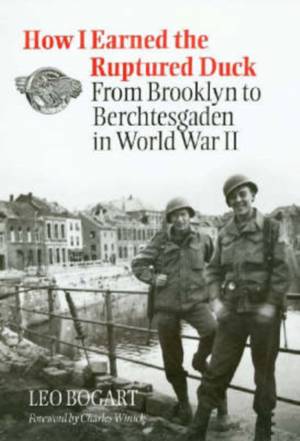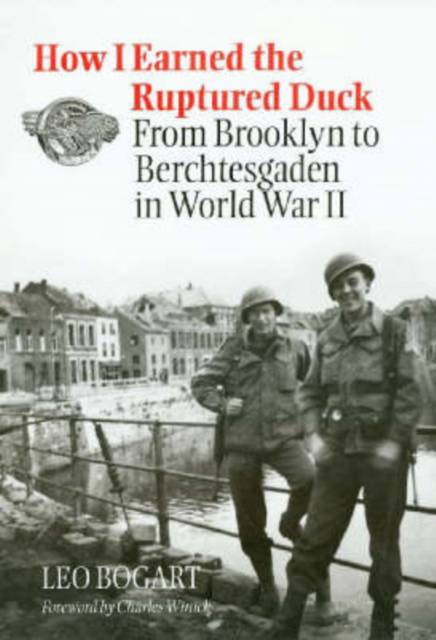
- Afhalen na 1 uur in een winkel met voorraad
- Gratis thuislevering in België vanaf € 30
- Ruim aanbod met 7 miljoen producten
- Afhalen na 1 uur in een winkel met voorraad
- Gratis thuislevering in België vanaf € 30
- Ruim aanbod met 7 miljoen producten
Zoeken
Omschrijving
Twenty years old when he entered the army in 1942, Leo Bogart was one of sixteen million Americans who served with the armed forces during World War II. Over the next four years he, and perhaps the nation, came of age. In numerous letters home, he provided a glimpse into the mind of a young American intellectual whose wartime journey carried him from New York to Germany and from adolescence to experience of the world's complexities. As shown by the letters and the narrative that fills in the gaps between them, the war engaged him, as it did many others, long before he put on a uniform. After a stint in the Army Signal Corps' enlisted reserve, he was inducted into active duty and assigned to the ASTP (Army Specialized Training Program) after which he was assigned to Signal Intelligence. The war presented him with a continually changing cast of characters and led him from a series of peculiar experiences with the vast military institution to the battle for Europe and finally to troubling confrontations with the defeated enemy. In 1946 Bogart was honorably discharged and, like millions of veterans, awarded a small gilt lapel pin bearing the stylized head of an eagle, nicknamed "the ruptured duck." The Second World War has been much celebrated in fiction and film portraying perilous exploits, death-defying bravery, and incessant action. But much of war involves inaction and boredom, stupid error as well as intrepid ingenuity. By showing how life moved from hour to hour and day by day, Bogart's running record illuminates some small homely aspects of the war that cannot be found in military histories focused on the marshaling of forces, the capture of cities, and the casualty counts.
Specificaties
Betrokkenen
- Auteur(s):
- Uitgeverij:
Inhoud
- Aantal bladzijden:
- 149
- Taal:
- Engels
- Reeks:
- Reeksnummer:
- nr. 92
Eigenschappen
- Productcode (EAN):
- 9781585442997
- Verschijningsdatum:
- 15/10/2003
- Uitvoering:
- Hardcover
- Formaat:
- Genaaid
- Afmetingen:
- 157 mm x 247 mm
- Gewicht:
- 439 g

Alleen bij Standaard Boekhandel
+ 91 punten op je klantenkaart van Standaard Boekhandel
Beoordelingen
We publiceren alleen reviews die voldoen aan de voorwaarden voor reviews. Bekijk onze voorwaarden voor reviews.











